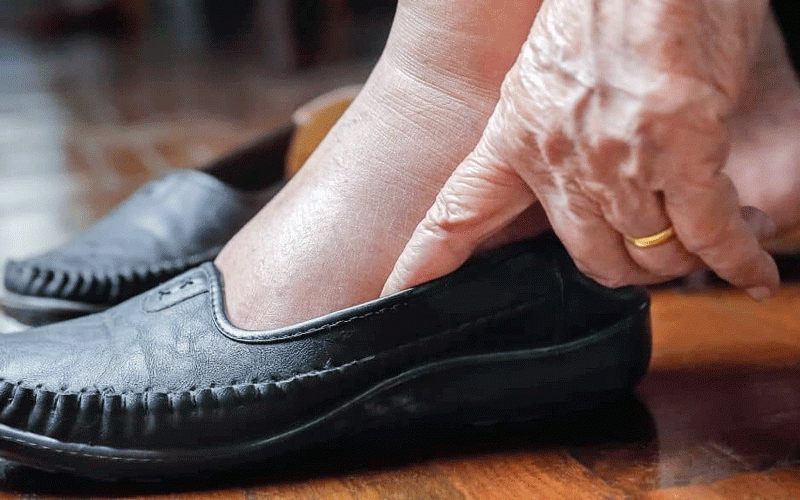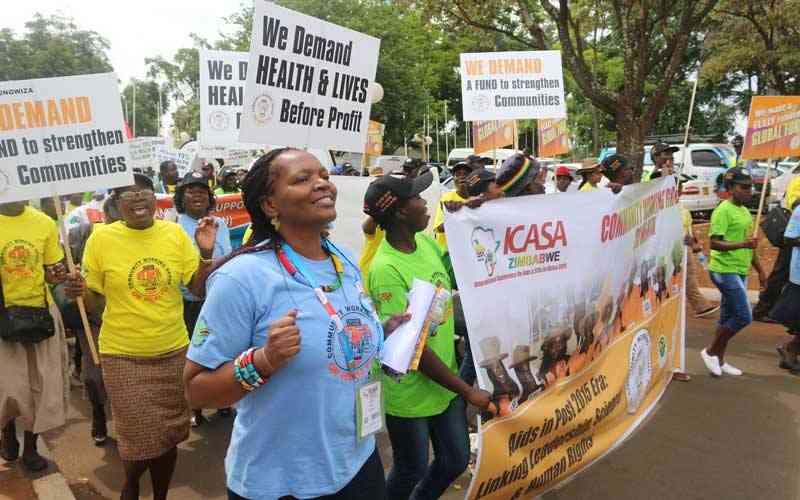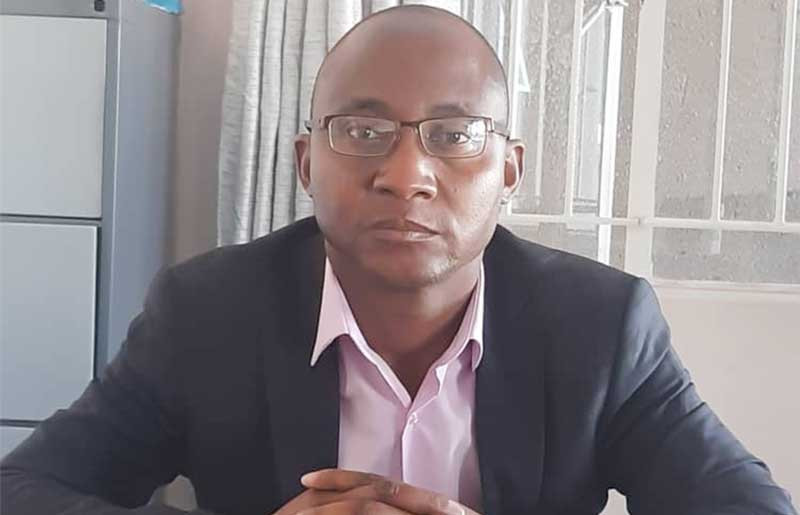
He has undergone four more operations after complications linked to the operation and can only relieve himself via a small plastic bag (Ileostomy bag). He has to wear the bag on a fulltime basis because he cannot control the movement of his bowel.
“I have been ridiculed by many in the community but I am happy because God saved me from death,” he said.
“I had six operations on the stomach, most of them during the difficult years we faced as a country.
“It was a big challenge for me because sometimes I had no money and depended on the benevolence of others, including the doctors who would operate on me on the promise I would pay later.”
What started as a negligible stomach ache in late 1999 saw Muzarawetu spending a lot of time out of work, hospitalised at least three times a year and undergoing six surgical operations.
But he could still dance around during our interview, proudly displaying a small plastic bag which receives all the waste from his body and telling of how he continues eating and living “normally”.
But a few days after the meeting, Muzarawetu made a distress call.
“My story has changed,” he said, sounding helpless. “I fell ill after that meeting and could not proceed to Hwange where I work.
- Chamisa under fire over US$120K donation
- Mavhunga puts DeMbare into Chibuku quarterfinals
- Pension funds bet on Cabora Bassa oilfields
- Councils defy govt fire tender directive
Keep Reading
“I have been told that I must undergo an emergence operation which will cost US$1 200 and the doctors have declined to operate on me saying I am already heavily indebted to them.
“I owe them more than US$3 000 and I am still hoping I can pay at some point because these people helped me a lot when I was almost dying.”Ileostomy and Colostomy Zimbabwe (ILCO ZIM) Trust last week held a meeting in Harare to mark the World Ostomy Day, which is a day to commemorate the lives of people like Muzarawetu, known as ostomates.
OSTOMATES are people who cannot pass out body waste in the usual way but use a surgical opening in the stomach known as an ostomy.ILCO ZIM programmes coordinator, Linda Moyo said the organisation was formed in January to advocate for the special health care needs of people like Muzarawetu.
“In the meantime, we are supplying a limited number of colostomy and urostomy bags which are beyond the reach of many.
“But our services are restricted to the urban areas of Harare, Bulawayo, Gweru, Masvingo and Chiredzi because of limited funds,” Moyo said.Moyo said among other problems faced by ostomates in Zimbabwe was the high cost of colostomy bags.
Each bag costs US$7 and it can only be used for one day.
The more durable bags which can be changed after five days cost US$25.
“There was a time when I would spend the day at home with a small blanket beneath me so all the waste could just spill on the blanket as I did not have money to buy the bags,” Muzarawetu said.
“We also require a special paste for cleaning the stomach. You can see, it is dirty and cannot be cleaned with ordinary soap but I have never tried that one because I do not have the money.”
Moyo said her organisation now has 498 ostomates and hopes government and other well wishers would work together to improve the lives of others with a similar condition.
“I am employed as an accountant in the food industry and life is difficult because of this condition which requires that I spend a lot of money on just my health,” Muzarawetu said.











